Michael Walters
Notes from the peninsula
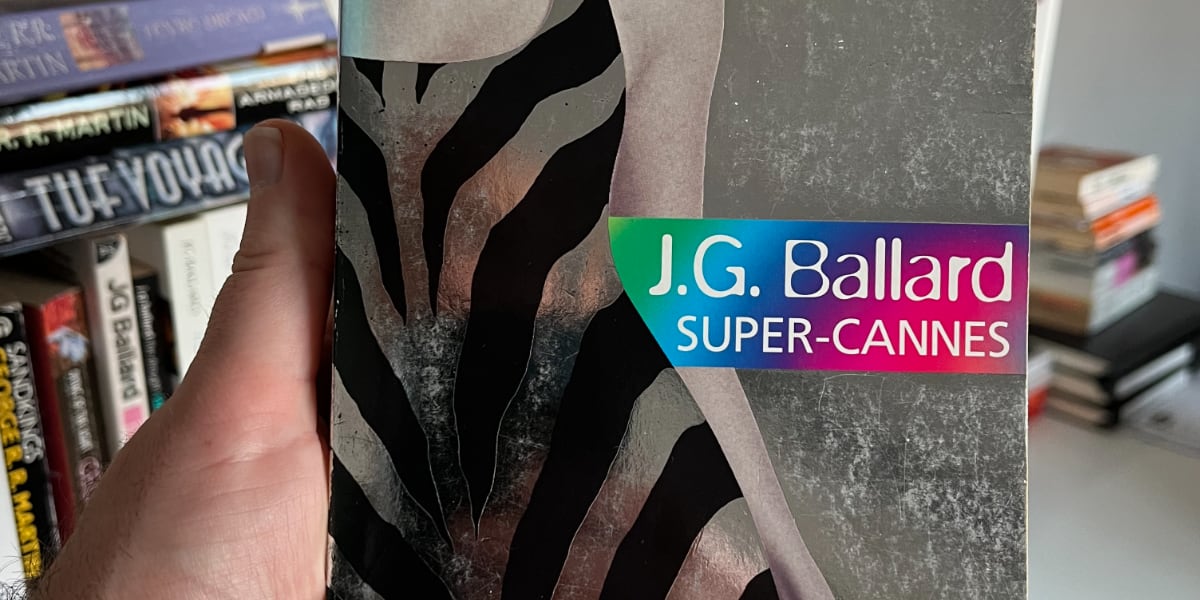
Super-Cannes
Author: J.G. Ballard
First published: 2000
It’s 392 pages long, which at 34 lines/page, 10 words/line, is around 133,000 words. There are 42 chapters, each around 3,000 words, it’s in two parts. I needed to know!
The point of view is first person. The protagonist, Paul Sinclair, is an aircraft pilot, ex-RAF, recovering from both legs being broken in a flying accident. He’s newly married to Jane, who’s much younger, a paediatrician, starting a six-month secondment at Eden-Olympia, a giant business park above Cannes. She’s taking the place of David Greenwood, a doctor she knew from London, who killed ten people with a rifle before being killed by security staff.
I wanted to read this now because it’s a book I’ve told myself I love for years, but I couldn’t say why, and I remember it was also frustrating, and again, I couldn’t say why. The idea of an outsider going to a campus where something is terribly wrong is part of my work-in-progress. I was looking for prose style ideas and also to see how Ballard moved his story through time (because I’m not good at that). What timeframe does the story unfold over? How many characters are there? What made it so readable? Why did it stick with me?
The first chapter sets up the dynamics of the Sinclairs’ marriage and packs a lot of inciting incident information. Paul observes Jane: reading the details of Greenwood’s death in Paris Match, driving the Jaguar aggressively, changing spark plugs, being protective of Paul’s legs which are in braces from his accident, and being doubtful about her decision to take the new job. He describes his relationship with his parents, his business as an aviation publisher, and it becomes clear they are both impulsive adventurers egging each other on. It’s a chapter to set everything up.
From here, each chapter is a scene, more or less, between Paul and one of the characters working at Eden-Olympia. While Jane loses herself in Eden-Olympia’s relentless work ethic, Paul is bored and easily led by the psychiatrist Dr Wilder Penrose into an investigation of Greenwood’s crimes. At each turn he’s met with a new clue and more details of the criminal underbelly beneath the world of extravagantly paid CEOs and scientists. It’s propulsive, lyrical, intelligent, full of philosophically playful ideas about work, capitalism, corporations and what it means to be human, and it’s sexy in a cold, disturbing way.
Towards the halfway point, it begins to feel dull. Every character outside of Paul and Jane’s marriage is unpleasant. It’s exciting to find the next piece of the plot’s puzzle, and the descriptions are often wondrous, but the coldness and nihilism, which is the part of the point of the novel, sucks away much of the fun. Everyone involved in Eden-Olympia is a workaholic zombie, except for Dr Penrose, who is joyfully running his violent experiments.
Ballard thankfully changes gear to give the story a new lease of life, first via the emotional reactions of security head Frank Halder, then with the sexual manipulations of Frances Baring, and finally the philosophical reveals of psychopath Penrose to set up the final act.
What I found frustrating: it’s 150 pages too long; he has lyrical motifs that can grate; it’s rigid, repetitive, and too emotionally cold for my taste.
What I want to take with me: the way a character can give the world a personality through details; sweet, seedy dialogue; how characters have memories and fantasies; being daring with ideas.
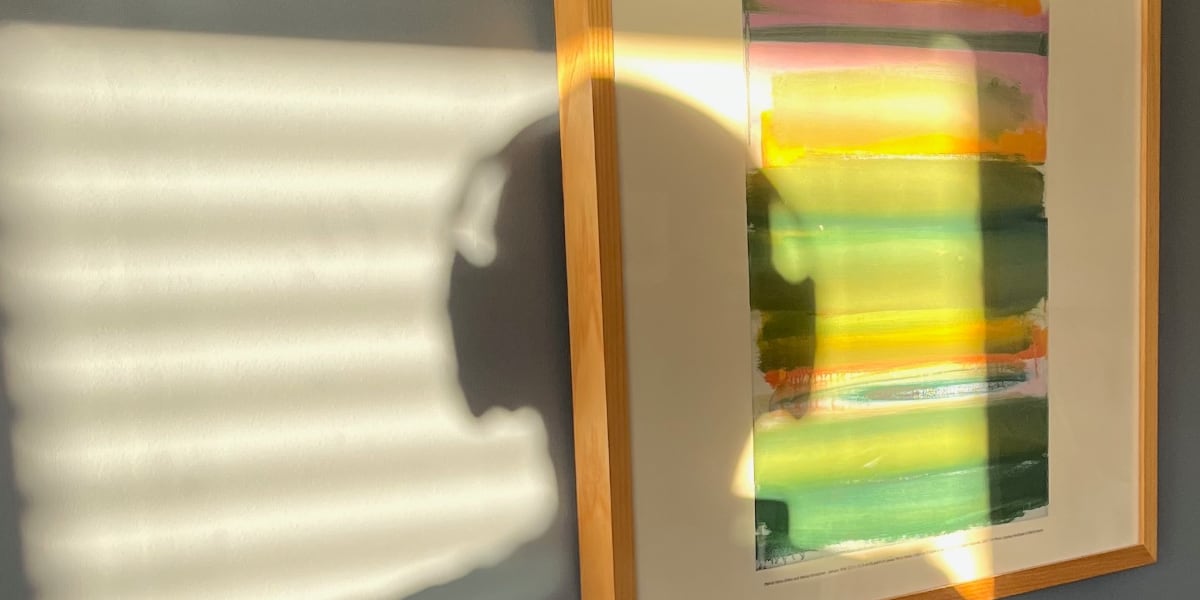
Art funnel
I have a pitch to myself. I want to get better at speaking in public. I also want to be more actively engaged in the research I’m doing for my next book. I love doing #31DaysofHorror, where I reflect on films I’ve watched, but the pace is not sustainable. Instead, I could drop the goal aspect, add books to the mix, post some thoughts in the same format (three to four paragraphs) and at the end of the month make a short video about them for Patreon.
I saw Mulholland Drive last week in the cinema, and it was a feast for the senses. Instead of writing about it, I tried making a video. I floundered. If I were in the pub talking to a mate about a film, there would be bustle around us, body language, questions, encouragement, and I’d adjust what I was saying according to the feedback. Instead, alone in my room, I obsessed over lighting, microphone placement, the blemishes on my face, the size of my ears, the state of my clothes, and my voice was a drone of clichés and dull details. Talking to a camera is unnatural. It’s hard!
In contrast, I wrote a piece about Mulholland Drive a few years ago with none of this drama. Writing to help think something through feels completely natural to me. I think differently while walking—talking out loud doesn’t add anything, and the walk-thinking is more expansive, more associative. I can drift and easily lose track.
On camera, my talk-thinking was a disaster. I tried pretending there was a person in the room, but it didn’t help. In a conversation, the other person solidifies what’s being said. The podcasts I love are conversations, not monologues. Solo vloggers on YouTube are more like TV presenters, and most have scripts, or at minimum a list of talking points.
So, back to my pitch to myself. Write more posts about films and books, and add a video summary to Patreon each month. It’s a proposal for a bit more structure to what I already do. The vlog part is an audio-video version of the “seen, read” I already post for patrons. It’s not a big deal.
Am I convinced? I woke up the other day with the words ‘art funnel’ in my head. Look, in dreams, you get what you’re given. Freud would love an art funnel. A sexy art funnel. Now there’s something to ponder.
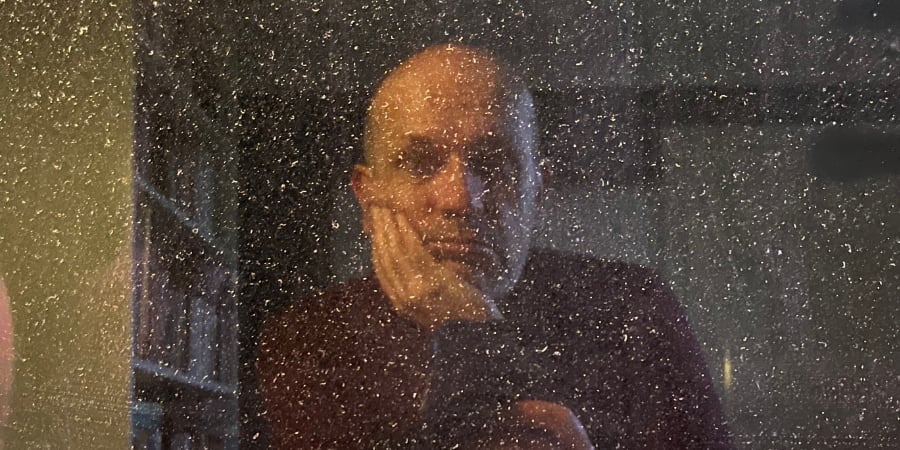
What’s good to share?
I noticed this week that my Bluesky spring was going dry. It took a couple of days, but I caught myself being—what’s the best word, inane, clichéd, boring?—and so I did what I always do, I started deleting the chaff from my feed. I don’t know why it matters to me in such a transitory medium what my last month’s posts look like. I suppose I’m thinking about how I come across to potential new readers. It’s also because I’m a natural-born (word killer) editor.
I’m playing with YouTube-style videos at the moment (ffs). Patreon has added the option to host videos and also create a podcast feed from the audio. I am a tech moth to a flame. Talking to a camera alone is hard. My favourite podcasters come in pairs, in conversation about things they love, sparking and connecting off each other, but my attempts to talk about a film, Mulholland Drive, alone, felt lifeless.
YouTubers seem able to turn on the charm, possibly because they can see themselves on camera. Often they have someone else filming. I was suddenly sympathetic with all the actors recording auditions on their phones in hotel rooms (all of them!). It’s an imagined audience. It requires structure, even if that’s just a list of things to cover. The flow can easily dry up without another to prompt you. It feels silly, slipping into a persona when nobody is with you, for a future audience. And I’m still not used to how I look and sound to other people. I’m not a natural performer.
Writing is different. I have to write alone. I can rewrite to my heart’s content. I can be another person more naturally in words.
I posted a short story to Patreon this week. That’s real content. I’ve been ambivalent about doing that for years, but fuck it, I’m ready to start experimenting with new approaches. I want to create good work and lots more of it. Getting it into the world is energising.
I’m not going to second guess what other people want anymore. The true path is to say what I want to say, even if nobody’s interested, and to be myself, to become myself as fully as I’m able, even when that pushes people away.
The whole shebang
Tomorrow’s the end of February. Mum died eleven years ago. This month has involved a last minute writing retreat, two replaced bathrooms, ongoing physio rehab, my sister and family coming to visit, unexpected and unrealistic work deadlines, and the news showing the United States government turning Chaotic Evil. On Bluesky, I continue to stick to my schtick of noticing daily details that are true to me, sometimes amusing and offbeat, and give a little hope. It helps me at least.
The bathrooms are almost complete. The tiles look fantastic. The installers are a Polish father and son, so sweet together, and sometimes the father takes a call and I can hear children’s voices, possibly grandchildren. The son listens to a Polish radio station playing quietly while he works. As lovely as they are, it’s hard to relax, especially working from home. We’re close to getting our house back. Perhaps Tuesday next week.
The book continues to percolate and grow in my mind. I’m reading about estrangement. That’s one of the themes. I’ve started several books this month, but only finished one. The rest are hanging, a dozen or so pages in, waiting for their moment. I have decisions to make about style, voice, form, characters, the whole shebang, but I’ll continue to go at the pace I can manage. I’m more inclined to practice guitar and sing in the evenings as a respite from words and screens. That’s true play.
Glass full
Life feels tough this month. There’s a lot going on at work, I’m doing physio rehab, there are tradesmen in the house making a mess, the world seems to be in an awful place and getting worse, and I’m too tired in the evenings to read or write. I am grateful for all I have, but my body and brain is at full capacity.
I’ve been back two weeks from a five-day Arvon-run writing retreat. Eleven writers, two tutors, one massive house in rural Shropshire. It was creatively invigorating. I wrote a synopsis of my next novel, edited what I already had, and started some new chapters. The theme of the week was using other arts as part of writing practice, like music, dance, and drama. We did workshops in the morning and had afternoons free for writing, reading, walking, and tutorials.
By the last day I was wrung out and ready to come home. It was wonderful but intense. On the last evening, we all read aloud something we’d written during the week.
Returning home was a relief, but the unique atmosphere of being away with other writers in a literature-centric space is impossible to replicate at home when you have a day job and a family. It did show how hard it is, legitimately hard, to maintain focus on writing projects in ordinary life. It isn’t that I’m lazy or distracted, it‘s that I’m using most of my energy getting through the days. I’ve chosen an intense profession for my nine-to-five.
That’s helpful to recognise. It gives me something to work with. If I want to be more engaged with my literary ambitions I need to change something.
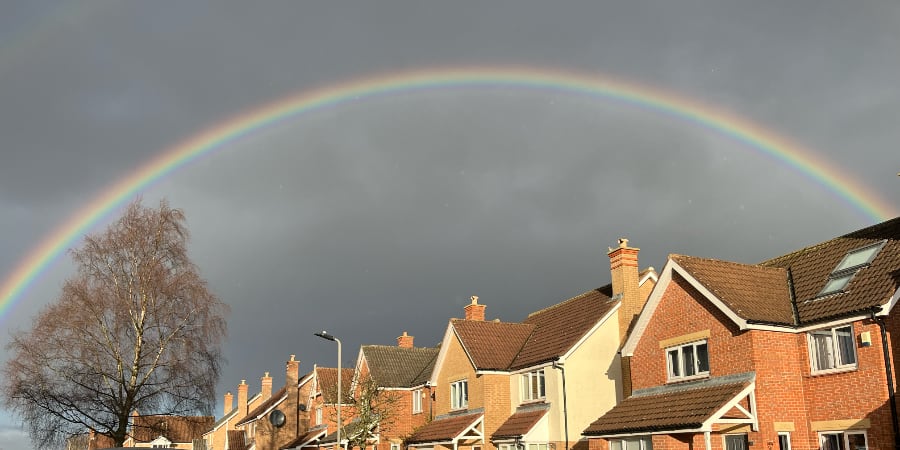
Switching
I’ve always switched between interests. When I beat myself up over it, it never ends well. Different parts of my life need attention at different times—health, family, creative writing, cinema and film, food and cooking, playing a musical instrument, learning another language, software development—when I neglect one, it invariably comes up as a desire in some shape or form sooner or later, and ignoring that intuitive reminder is when the trouble starts.
I can be too rigid around these identities. If I’m not writing, I’m not a writer. Not helpful. Life is much more interesting and complicated than that. I write in my notebook every day. I cook meals for myself and my family every day. I manage a software team in a full-time job. It’s not like in those Richard Scarry books about what adults do all day. We are not the jobs we do, and I can’t believe I need to remind myself of the trap, but it’s been in the back of my mind most of my life.
We can be everything we want to be, perhaps swimming more in the shallows than getting out into the deep water for most things, and for me, that is a healthy space to be creatively.
I know why I beat myself up over the writing for so long. It took the reality of being published (Nobody cares! There’s no money for writers! It’s a racket for the publishing industry!) and then my father slowly dying to break the narrative in my head.
We can only do one thing at a time and there’s a cost to switching. That’s true. We are also complex beings that thrive on making connections between things. A meal I make might find its way into a story I’m writing. While practicing guitar, a solution to a coding problem might pop into my head.
Intuition doesn’t care what you’re doing. It connects. When I put down fixed ideas of success and pay attention in all areas of my life, everything becomes easier. The internal drama dissolves. I feel calmer, the whole is clearer, and everything is more meaningful and fun.
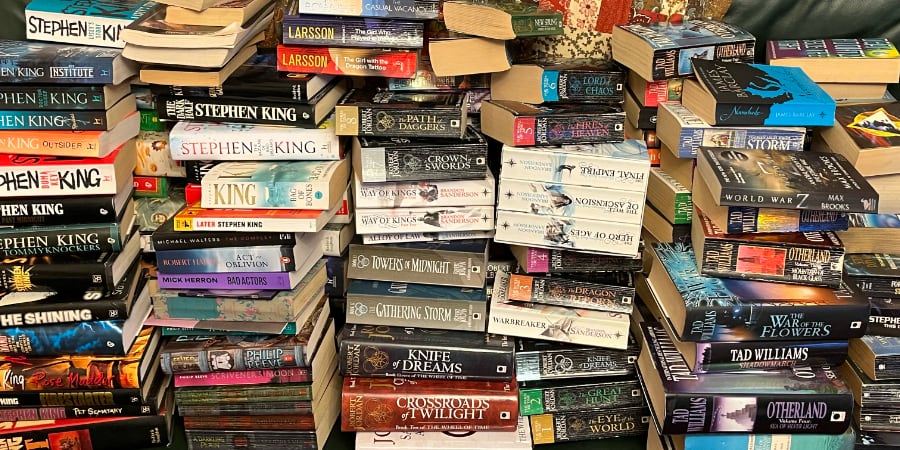
Seen, Read: 2024
- FILMS IN ALL CAPS (C if in cinema)
- Books, by author, on end date (with start date)
- Short stories in italics
In the spirit of Steven Soderbergh’s media list:
- 01.01 SILENT NIGHT
- 02.01 Assembly, Natasha Brown (01.01)
- 06.01 Infidelities, Kirsty Gunn (31.12)
- 07.01 PRISCILLA (C)
- 10.01 OLD HENRY
- 13.01 SISU
- 14.01 THE ACCOUNTANT
- 21.01 THE HOLDOVERS (C)
- 23.01 SHOWING UP
- 27.01 ALL OF US STRANGERS (C)
- 30.01 SLY
- 07.02 ALITA: BATTLE ANGEL
- 11.02 ARGYLLE (C)
- 13.02 August Blue, Deborah Levy (07.01)
- 15.02 THE ZONE OF INTEREST (C)
- 17.02 AMERICAN FICTION (C)
- 24.02 APOCALYPSE NOW
- 04.03 THE KILLING
- 06.03 CASABLANCA
- 08.03 THREE DAYS OF THE CONDOR
- 10.03 DUNE: PART TWO (C)
- 11.03 HOLLYWOOD DREAMS & NIGHTMARES: THE ROBERT ENGLUND STORY
- 13.03 THE TASTE OF THINGS (C)
- 16.03 NO HARD FEELINGS
- 19.03 BREATHLESS
- 20.03 PERFECT DAYS (C)
- 21.03 BLUE JAY
- 23.03 GHOSTBUSTERS: AFTERLIFE
- 24.03 GHOSTBUSTERS: FROZEN EMPIRE (C)
- 27.03 IMMACULATE (C); The Player of Games, Iain M. Banks (18.03)
- 29.03 CELL
- 30.03 THE BEEKEEPER
- 31.03 GODZILLA × KONG: THE NEW EMPIRE (C); Luster, Raven Leilani (29.03)
- 05.04 KUNG FU PANDA 4 (C)
- 07.04 GOLDENEYE (C)
- 10.04 THE TOMB OF LIGEIA
- 14.04 CIVIL WAR (C)
- 15.04 THE PIGEON TUNNEL
- 16.04 The Fall of the House of Usher and Other Stories, Edgar Allan Poe (14.03)
- 20.04 ABIGAIL (C)
- 22.04 TAKEN
- 24.04 DEATH RACE 2000 (1975)
- 25.04 ZOMBIES CREEPING FLESH
- 26.04 MONOLITH; A Man Named Doll, Jonathan Ames (17.04)
- 27.04 HOUSE OF USHER (1960)
- 28.04 MAD MAX: FURY ROAD (C)
- 04.05 X; PEARL
- 06.05 THE FALL GUY (C)
- 11.05 Cornish Horrors: Tales from the Land’s End, ed. Joan Passey (08.04)
- 13.05 ROLLING THUNDER
- 15.05 You Were Never Really Here, Jonathan Ames (15.05)
- 17.05 STEVE! (MARTIN) A DOCUMENTARY IN 2 PIECES
- 19.05 BLUE BLOOD
- 19.05 KINGDOM OF THE PLANET OF THE APES (C)
- 20.05 The Sea Inside Me, Sarah Dobbs (16.05)
- 23.05 FALLEN LEAVES
- 25.05 RESULTS
- 26.05 FURIOSA: A MAD MAX SAGA (C)
- 31.05 All Fours, Miranda July (26.05)
- 03.06 LATE NIGHT WITH THE DEVIL
- 04.06 CASINO ROYALE (C)
- 06.06 DARIO ARGENTO: PANICO
- 08.06 THE BIRD WITH THE CRYSTAL PLUMAGE
- 12.06 A Far Cry From Kensington, Muriel Spark (03.06)
- 13.06 THE CAT O’NINE TAILS
- 15.06 GODZILLA MINUS ONE
- 16.06 INSIDE OUT 2
- 17.06 FOUR FLIES ON GREY VELVET
- 18.06 THE GODFATHER (C)
- 19.06 Parade, Rachel Cusk (12.06)
- 21.06 DEEP RED
- 06.07 SUSPIRIA (1977); MAXXXINE (C)
- 07.07 A QUIET PLACE: DAY ONE (C)
- 08.07 INFERNO (1980)
- 09.07 TENEBRE
- 12.07 UNDER PARIS
- 13.07 DESPICABLE ME 4 (C)
- 17.07 TWISTERS (C)
- 21.07 FLY ME TO THE MOON (C)
- 22.07 In Ascension, Martin MacInnes (09.07)
- 23.07 LONGLEGS (C)
- 27.07 PHENOMENA; Double Fault, Lionel Shriver (27.07)
- 28.07 DEADPOOL & WOLVERINE (C)
- 31.07 OPERA
- 07.08 TWO EVIL EYES
- 10.08 BORDERLANDS (C)
- 11.08 TRAP (C)
- 12.08 TRAUMA
- 14.08 SHARK SKIN MAN AND PEACH HIP GIRL
- 15.08 Seraglio, Graham Swift
- 16.08 The Tunnel, Graham Swift
- 17.08 TWISTER; The Lonely Songs of Lauren Dorr, George R.R. Martin
- 18.08 ALIEN: ROMULUS (C); Sun and Moon, Katherine Mansfield
- 20.08 THE STENDHAL SYNDROME
- 22.08 CHILDREN OF MEN
- 28.08 Doctor Who and the Dalek Invasion of Earth, Terrance Dicks (27.08)
- 01.09 JAWS (C)
- 09.09 UNRELATED
- 14.09 BEETLEJUICE BEETLEJUICE (C)
- 15.09 LEE (C)
- 21.09 HIT MAN
- 27.09 A HISTORY OF HORROR
- 28.09 WHITE HOUSE DOWN
- 29.09 WOLFS
- 01.10 Alison, Lizzy Stewart (20.09)
- 06.10 JOKER: FOLIE À DEUX (C)
- 13.10 GLADIATOR (C)
- 18.10 BLOOD AND BLACK LACE
- 31.10 The Last Supper, Rachel Cusk
- 03.11 PIG
- 04.11 BIG TROUBLE IN LITTLE CHINA
- 10.11 PADDINGTON IN PERU (C)
- 12.11 ANORA (C)
- 13.11 THE CAR
- 15.11 AMERICAN MOVIE
- 16.11 ENYS MEN
- 17.11 THE ETERNAL DAUGHTER
- 19.11 DRACULA
- 21.11 THE PHANTOM OF THE OPERA
- 22.11 GOTHIC
- 24.11 GLADIATOR 2
- 25.11 SLEEPLESS
- 28.11 THE CARD PLAYER
- 29.11 RED ROOMS
- 30.11 CONCLAVE (C); The Labyrinth, Amanda Lohrey (23.11)
- 02.12 I SAW THE TV GLOW
- 03.12 THE APPOINTMENT; Next to Nature, Art, Penelope Lively (01.12)
- 04.12 THE FEARLESS VAMPIRE KILLERS
- 05.12 THE DAY OF THE BEAST
- 07.12 BLITZ
- 08.12 SAINT MAUD
- 09.12 CHRISTMAS BLOODY CHRISTMAS; VIOLENT NIGHT
- 10.12 Orbital, Samantha Harvey (03.12)
- 11.12 SILENT NIGHT, DEADLY NIGHT
- 14.12 IN A VIOLENT NATURE; ANNA AND THE APOCALYPSE; The First Bad Man, Miranda July (09.12)
- 15.12 NIGHTMARE CITY
- 16.12 Hide and Seek, Dennis Potter (15.12); MANIAC COP
- 21.12 MOTHER OF TEARS
- 22.12 GIALLO
- 22.12 WHAM!
- 23.12 THE HOUND OF THE BASKERVILLES
- 23.12 Binary, Michael Crichton (17.12); MADS
- 24.12 TWISTERS
- 25.12 REBEL RIDGE
- 26.12 ARGENTO’S DRACULA
- 27.12 DARIO ARGENTO: PANICO
- 28.12 DARK GLASSES
- 29.12 CUCKOO
- 30.12 THE HOUSE WITH LAUGHING WINDOWS
- 31.12 The Music of Chance, Paul Auster (23.12); BLACK CHRISTMAS (1974)
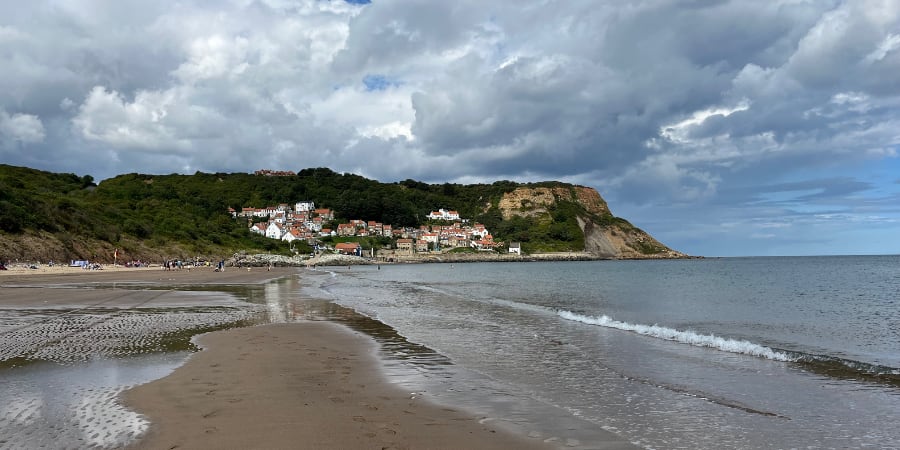
A true note
I called this website ‘Notes from the Peninsula’ with the intention of posting personal thoughts and mixing in reports from a character on a quixotic quest on the coast of an imagined peninsula. The latter hasn’t happened. Instead, I’ve continued to post mini reviews of horror films under the guise of my Dario Argento project and the made up social media challenge 31 Days of Black Xmas.
That’s partly because I don’t want to publish fiction in the same loosey-goosey way I post about my life and the films I’ve seen. I consider blog posts and Twitter Bluesky to be ephemeral. They are a way to process things. They will never get pulled into anything with an ISBN. Stories have more weight to them, at least in my head, because the publishing industry, competitions, submissions, all that, has always considered stories appearing on websites as being published (which is, of course, accurate), and so disqualifying from further attention, even if you threw it up on your website without much thought and nobody has read it.
I still like the idea of using a website as part of the reader’s story experience. It’d be there if people wanted more after finishing the ISBN’d works, it would be useful for marketing before and after publication, and it could even be part of the process of my writing as a whole. I believe Twitter gave The Complex its wings in 2019. Being a persona online is part of the game.
Vladimir Nabokov wrote the short novel Pnin in parallel with Lolita, which came out a year later. He wasn’t afraid of a little literary experimentation. Short stories can be playgrounds for voices, ideas, themes and stylistic choices, and so lay the groundwork for longer pieces. Ideas can pollinate each other. A theme can become more or less interesting over time. That aspect of my writing practice is currently weak.
I work in software, I started as a web designer, and I loved blogs when they took off, so it’s a natural extension for me to imagine a website, social media, blog posts, story fragments, short stories and novels as part of a creative ecosystem. That doesn’t mean it’ll work, it could very easily become a distraction from writing, but I haven’t given up on the idea yet.
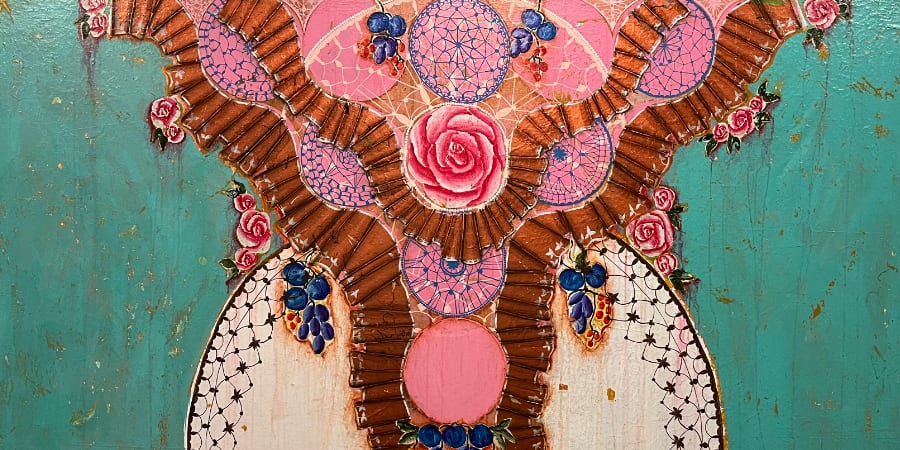
Spirals
Returning from holiday, I went into an overwhelm spiral, and I’m only just getting out of it. Nothing too serious, but frustrating nonetheless. Lots of loops are closing, but it’s taken me a while to acknowledge that, and they’re not yet completely closed—my father, his house, my hip pain, general work tumultuousness—life is different and will become more so.
For a couple of days I thought I was going to do #31DaysofHorror again, even though we’re travelling to Sydney, Australia, for the second half of October. I wasn’t thinking rationally. I just wanted to fill the empty spaces around me without knowing what I was doing. Got to keep busy, you know? Something doesn’t feel right, so I’ll watch a horror film. Luckily, I noticed, so we’re good.
The picture is of a collage by Brazilian artist Beatriz Milhazes, from her exhibition at Tate St Ives. The exhibition was called Maresias, which apparently means an Atlantic breeze, and lots of the other pieces fitted more into that idea, but this one stood out to me because it had a different energy. It’s called ‘O Rapaz, The Young Man’. I love the femininity of the phallic shape, and in person it’s really big, over six feet high. It commands the space.
Coming back from St Ives, the feelings of freedom, exploration and fun dissipated quickly. I knew I’d get the post-holiday blues, but that didn’t stop them coming. Busy blues. Hectic blues. Some of the damage was self inflicted, some from circumstance, but the horse is back in the stable, the phallus is back in the trousers, and the skies are clearing.
I want to finish the short story I’m writing before the end of this month and post it for my Patreon friends. It’s called The Box. More information soon.
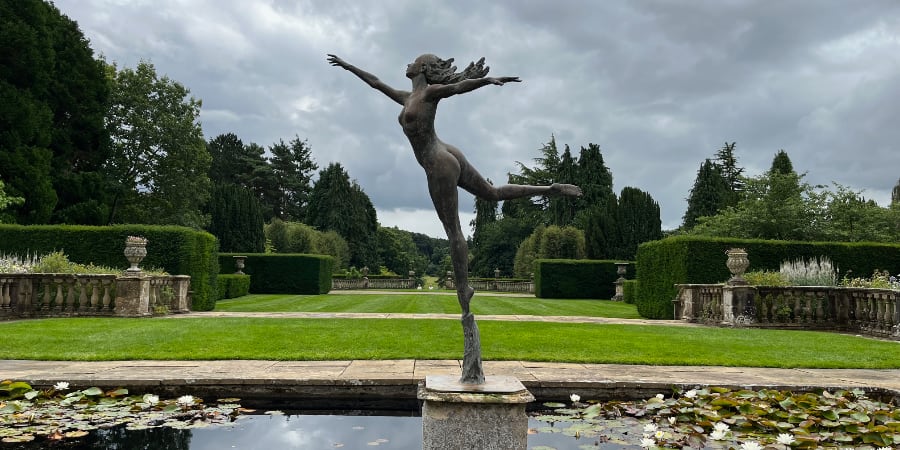
Early summer books
It started with the good: All Fours, by Miranda July. I haven’t laughed out loud so much at a book since Bridget Jones’s Diary. I don’t choose comedy novels because I take reading far too seriously. The unnamed artist makes terrible, hilarious decisions over and over, but she’s also just trying to have the horny creative life she wants. I chose another light novel next, Muriel Spark’s A Far Cry From Kensington. Working in publishing always seems so grim in fiction, and grey fifties London too, but this journey is lit up by the delightful Mrs Hawkins who starts a devastating feud with the poisonous Hector Bartlett.
My hardback-a-month project hit a wall with Parade, by Rachel Cusk. I’m surprised how much I hated this book, and I have a pattern of refusing to give up on a book once I’ve started it, so this was a blow. After a few weeks I saw sense and pivoted to In Ascension, by Martin MacInnes, because it’s sci-fi and it was on the Booker Longlist 2023. The opening act was good, set mostly on a ship exploring a newly discovered trench in the ocean, but I became overwhelmed by the dry science talk, and I wasn’t interested in the arc about feeling guilty not caring for an aging mother, so I fell into the reading pit again.
The recovery: A.O. Scott’s Better Living Through Criticism: How to Think About Art, Pleasure, Beauty and Truth. A bold title, bought after listening to the author being interviewed by Marc Maron a year or two ago, and picked up because I owned it digitally. The new iPad needed a run out with the Books app. The first half of these essays on what criticism is and why it’s important was a joy. It got a little stodgy towards the end, but he reminded me how important it is to pay attention—to how I choose and how I engage with art of all kinds. (The iPad Books app is amazing, btw.)
Finally, the very interesting Double Fault, by Lionel Shriver. I was expecting not to like this because of the pickle she got into over cultural appropriation. The interviews she was doing at the time left a bad taste in my mouth. It’s dark. Winnie, a professional female tennis player, marries another pro and is crushed with envy when he begins to have more success than her. She’s unlikeable, there isn’t much tennis, but I read it in a day, admittedly skipping the melodrama and repeated arguments. Winnie has a heart of ice when it comes to competition. The Olympics started this week. It makes me wonder what’s going through the competitors minds.
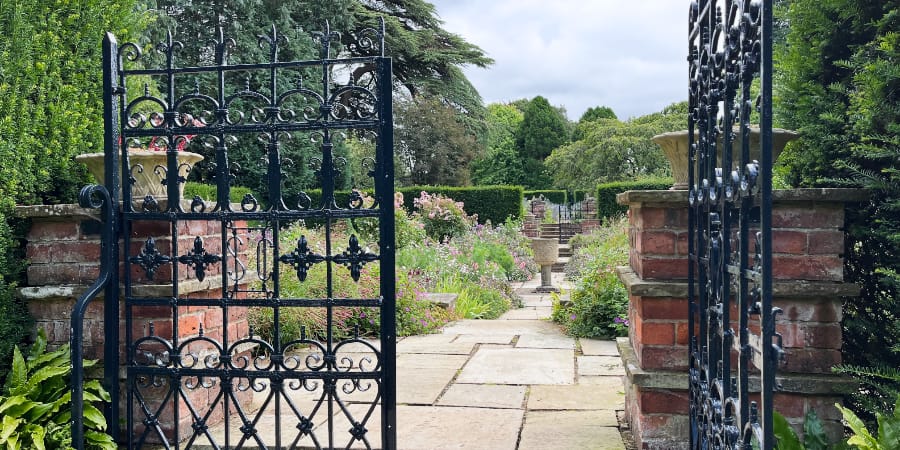
Something new
It’s almost the end of July. What’s been happening? The X-rays have confirmed I have moderate-to-advanced hip arthritis, but the physio has discharged me because I’m doing well enough to be left to build strength alone. My son has a “proper job” in his field in Australia, so he’ll be living there for the foreseeable future. I’m trying not to dwell on that, but he’s living the life he wants which makes me happy. Something else that makes me happy is that I’m not going to lose my job in the current wave of redundancies afflicting universities in the UK. Thank fuck. And we’re hoping to complete the sale of Dad’s house at the end of August.
Selling the house has become the marker for the end of the slew of unasked for changes that have come from the first half of the year. We’ve lost too many of our elders. Summer helps in the transition.
On the creative front, I dug out a short story I wrote for my Masters application in 2014, and I’m reworking it to publish on Patreon for those subscribed to the paid tier. I want to be true to its original energy and intention, but I’m a much better writer now, and I’m having fresh ideas about it. It’s exciting. I understand why I haven’t been writing, but now that I am engaged in a project again I can see the cost of having to put my attention elsewhere. Writing a story fulfils a part of me that can’t be satisfied any other way.
Much of this fresh energy comes from buying an iPad with an Apple Pencil. (I gave my father my last iPad because he wouldn’t buy another when his broke. That’s a nice circle to close.) It’s helped me think again about how I organise myself, take notes, do research, capture my thoughts, everything. I will always use a physical notebook and pen, but the iPad is giving me a new space to work in, between digital and analogue. Something new.
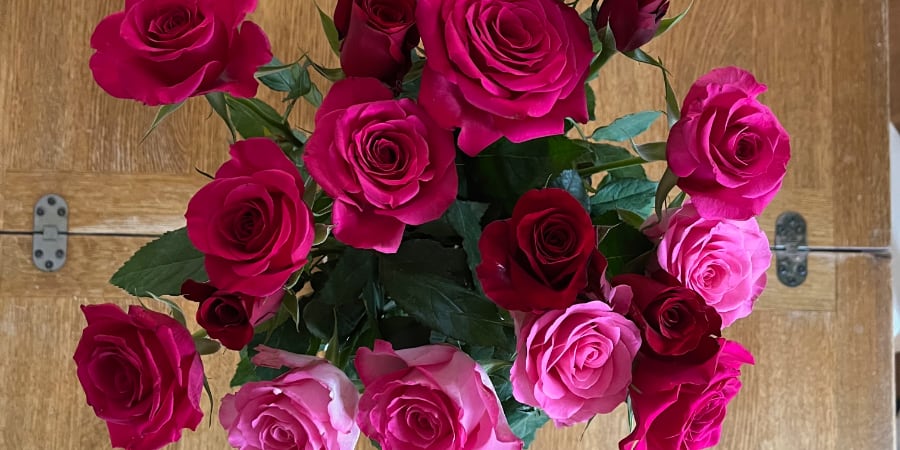
Darling buds
Four days off work! My plan was to not have a plan and trust I would do what I needed to do. It’s day two and I’m excited because things are changing — my glute tendons are healing (YES), my meditation habit has bedded in (now I miss it when I can’t do it), I’ve moved to using a black pen in my notebook for literary notes (to make them easier to find), I bought good pencils to get back into making notes in margins, my exercise clothes are all in one drawer (good morning yoga mat!) — the momentum is unmistakeable.
I’m making changes in my head with these small shifts. I wrote the word ‘studio’ on my white board a week ago, and that’s percolated into this energy I’m feeling which is about being focussed and mindful when doing the things that are important to me. In yoga they talk about bringing it all to the mat, and that’s what I think studio means to me. In writing, it’s the blank page, in cooking it’s a clean and organised kitchen counter. It’s a space and a mindset — a place to learn, study, practice and create. A place where you need to show up.
Patreon is alive again, and I’ve been thinking about what to do for the people on the Weird & Wonderful tier. I went through a period of buying a hardback novel once a month. Something new and hot off the press. The book that broke me was Ben Lerner’s 10:04, which at the time I couldn’t make head nor tail of. That was published in 2015 (didn’t expect that, but I shouldn’t be surprised, wow, nine years ago, fuck). I bought All Fours today, by Miranda July, thinking I would get back into that habit, and I’ll write about what I make of it for Weird & Wonderful members next month. It might become a thing, or it might not. Let’s see!
The WIP is alive too, which is nice, although writing hasn’t magically become easier in (let’s call it what it was) the break. There’s a lot of gunk in the mechanism. (Should that be the post title? Gunk in the mechanism? Um… no? Maybe?)
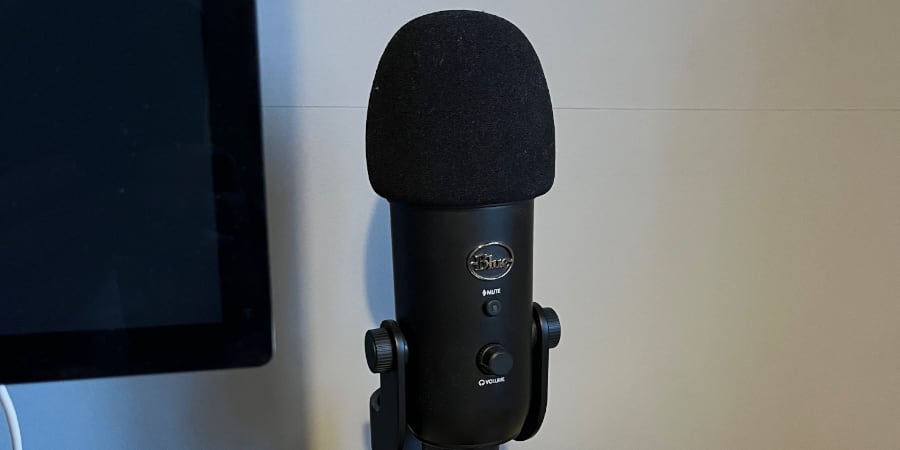
Gathering ideas
The heart of this project is writing new material. I also want a mechanism to let me easily share my work as I go, including selling it (shock horror!), without getting hung up on finding an agent and getting published.
Patreon wants to be the place where you follow artists you like and get posts, photos, podcasts, video, merchandise, the whole shebang, without algorithms. I dig that idea. Social media is still there to be used — to be part of the conversations happening and to direct people there if they want to know more.
I’m going to keep updating my website in parallel with Patreon public posts. I’m not willing to give up on the free web just yet. Offering more to people who pay for the Weird and Wonderful tier seems like an obvious thing to do. I’m going to continue posting my SEEN, READ lists for them, as well as new short fiction and whatever else I can think of.
(I played with a private podcast eighteen months or so ago - those episodes are still available on the paid-for tier. It was cheap and cheerful. I think I could do better now. And I still have the microphone, looking a bit more phallic than I remember, looming over the story dice…)
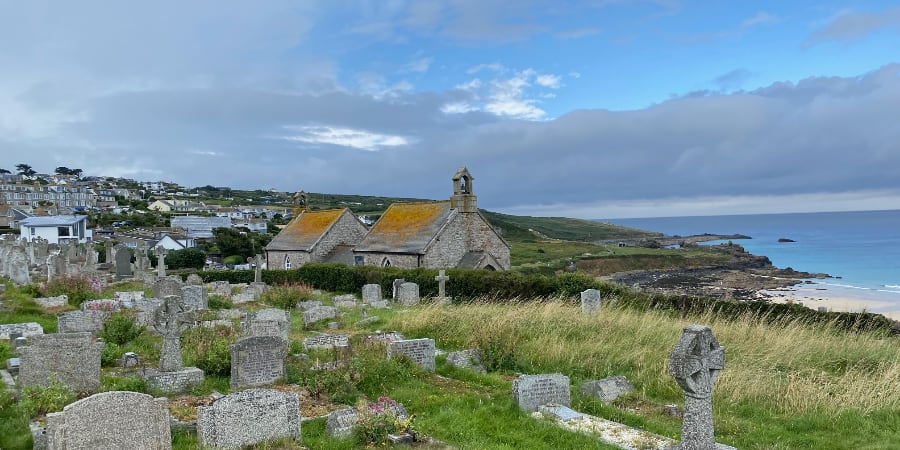
Cornish horrors
I took my time with Cornish Horrors: Tales from the Land’s End, a collection of short stories I bought in Swansea Waterstones on one of my visits to see my father. The British Library have published lots of themed collections like this. It caught my attention because my work-in-progress is set on a coastal stretch of an imagined part of the UK, and I wanted inspiration from misty Cornish coves, haunted beaches, old houses and folklore. We also haven’t been on holiday to Cornwall for a few years, so I think I was missing it.
Sadly, many of these stories were a slog. None of them were scary or even particularly unsettling. They were written by wealthy Victorians based in London who had recently visited Cornwall on the newly opened railways. The repeating themes of people seeking marriage, villagers mistrustful of outsiders, and men returning from foreign wars grates after a while. There were some good stories, of course, but in this instance I learned more from the bad.
Because I tend to imagine there’s a world of literature out there I know nothing about, and that if I read as much of it as I can, I will glean the knowledge and skills I need to feel worthy of calling myself a writer. It’s a sickness. Collections like this are a reminder that much of literature was written quickly, for money, to meet the market demands of the day. Most stories that are published serve their purpose in the cultural moment and disappear.
This collection is an attempt to capture something sociological, not literary. I don’t need to do research like this — looking back is useful if done in healthy balance with pushing forward. Research can easily turn into procrastination.
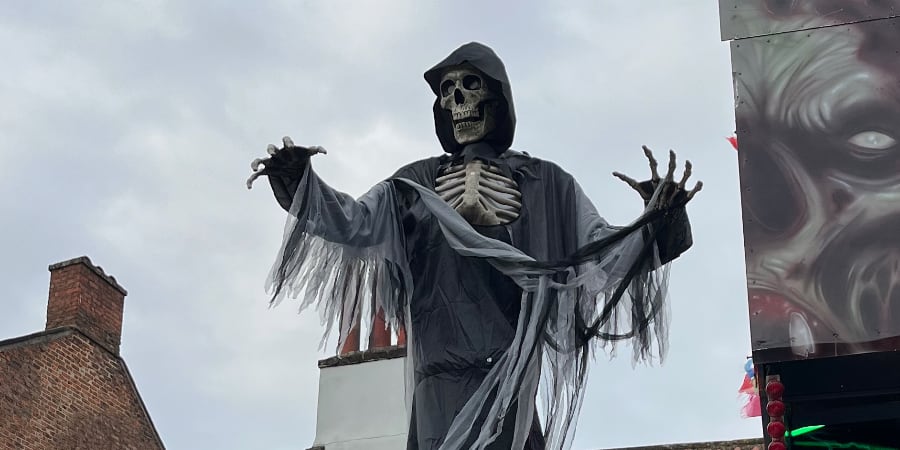
Impatience
Making art means making a mess. It means tidying up, organising, and discovering something in doing it. There are unexpected emotions. There are doubts and dead ends. There are technical problems. Many books are written about how people make art (or do anything creatively). Keeping moving, paying attention to what’s happening, making decisions, navigating squalls and storms, staying afloat — these are all part of it.
And it’s a lonely business if you’re not in a collective or a group. It’s lonely if you’re in one. You need to be able to handle ambiguity, incompleteness, uncertainty and abstractions. What’s inside wants to come out. Nature contains chaos. Mess can feel unsettling.
In writing software, developers prize efficiency, clarity and elegance, but people are organic — messy. Software programs talk to each other online twenty-four hours a day, all built by people, and at sufficient complexity software begins to look like an organism. This is part of the idea of artificial intelligence we hold in culture. At what point does the software we’ve written begin to act like the ghosts we’ve programmed into it?
Writing software is addictive. The problem-solving is addictive, user interfaces are addictive, the feedback loop of trying something, seeing it fail, trying something else, seeing it succeed, is addictive. If you want to lose eight hours in a flow state, programming is a great way to do it. It’s like an endless crossword or sudoku.
Many programmers like it that way and they’re not interested in the benefits (or negative effects) of the code they’re writing. They want it to be elegant, efficient, bug-free and done (and on to the next problem). As I get older, I’m finding that harder to tolerate in the people around me.
Part of me wants to make art and part of me wants to write software.
Editing prose engages the same part of my brain that fixes bugs in software. If I have an eight thousand word story, I can quickly make that a tight, elegant, efficient, bug-free, four thousand word story.
But, ironically given all the psychoanalytic psychotherapy I had, I find writing that eight thousand word story incredibly hard. Many people are the other way around, which makes me wonder what I’m doing wrong. I understand the value of my stream of consciousness thoughts, my dreams, and how my intuition can make connections. I know this. I should be programmed (!) for making things up by now without all this internal drama.
I’m impatient. It’s a deep-seated trait. It’s always in the background. I’ve been meditating every morning for six weeks now. Ten minutes with the teachers on Apple Fitness+. I wonder if that is why I’m starting to notice how impatient I feel. I’ve written many (many) times about slowing down.
Sometimes I think it’s because I’m getting older, but I was as impatient in my twenties. There’s always been this feeling that I’m going to miss out if I don’t move quickly. The gift is fleeting and then it’s gone.
That’s life. And that’s what it was like in my family growing up.
(Ah, we’re here again. Must it always be about my mother?)
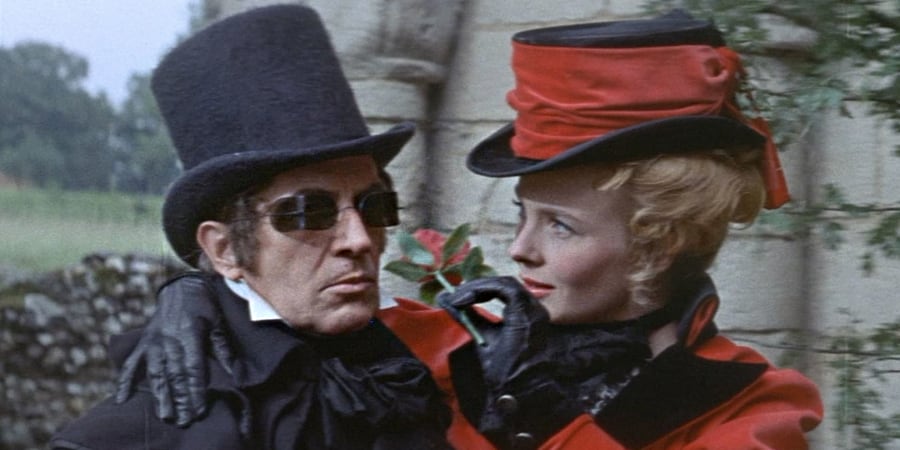
Ligeia
Ligeia, by Edgar Allan Poe, is a six-thousand-word hallucinatory tale about an intense marriage that survives beyond death. The narrator is looking back, remembering his wife, Ligeia, who he idolised. When she dies unexpectedly, he moves to an abbey in Cornwall, decorates it opulently with Egyptian artifacts, and marries again, this time to the ‘fair-haired and blue-eyed Lady Rowena Trevanion, of Tremaine’.
Still obsessed with the black-haired, dead Ligeia, who he describes in tortuous detail, he takes opium to numb his grief, and treats Rowena terribly. After a month of marriage, Rowena falls suddenly ill, recovers, but falls ill again, and in opium-infused memories he sees a ghostly form put poison in her drink. Ligeia was sure that she could avoid death through the force of her own will, and the narrator believes her ghost comes back in Rowena’s body.
Ligeia was first published in 1838, in American Museum magazine, but was revised extensively in future publications. Critics liked it, George Bernard Shaw loved it, and some thought it to be a satire of the gothic fiction of its day. It’s written in an intense, overwrought style, common at the time, and it may well have been deliberately so to make fun of it even in 1838. As the first Poe story I’ve read, it’s hard for me to judge, and it makes me wonder what the others are like.
The narrator’s love for Ligeia is like a son with his mother. It’s unnaturally intense in adulthood, and in the story’s language there are hints of foul play in her death. He paints her as an academic enchantress, which must have been as terrifying as it was seemingly satisfying. It makes me wonder if the narrator killed Ligeia — and then killed his second wife too.
In Archetypal Projection in “Ligeia”: A Post-Jungian Reading, Joseph Andriano sees the narrator as charmed by an anima daemon, a shadow feminine character, who stays alive in him and comes back through his wife-imposter. He ‘kills his mother’, only to find her again in the next woman he marries. Another analysis of Ligeia observes the sex hidden beneath the Victorian veil, and suggest Poe is a ‘genteel pornographer’.
After buying the Blu-ray player (!), I watched Roger Corman’s The Tomb of Ligeia (1964), which looked beautiful. Vincent Price acts his socks off as Verden Fell, the name given to the narrator by screenwriter Robert Towne. Fell buries his wife, Ligeia, in the graveyard at his abbey, but his grief is interrupted by Elizabeth Shepherd as a persistent, dynamic Lady Rowena, attracted to the abrasive, unpleasant Fell. The story doesn’t have much overlap with Poe’s original, focussing on mesmerism rather than opium or witchcraft, and it ends with the standard sixties gothic trope of an old building burning down, but it’s charming, with excellent dialogue, and pleasingly committed performances for a tightly-budgeted (aka cheap) Corman film. Lots of cats are thrown around. Shepherd has a dual role, which reminds me of Barbara Steele in Black Sunday (1963). I wonder if Corman was influenced by Mario Bava.
I could go in several directions from here — more Poe short stories, more Poe adaptations by Corman (he made eight between 1960—64, his ‘Poe cycle’), more Cornish horror shorts, or coastal horror stories in general… having a small project this week worked well.
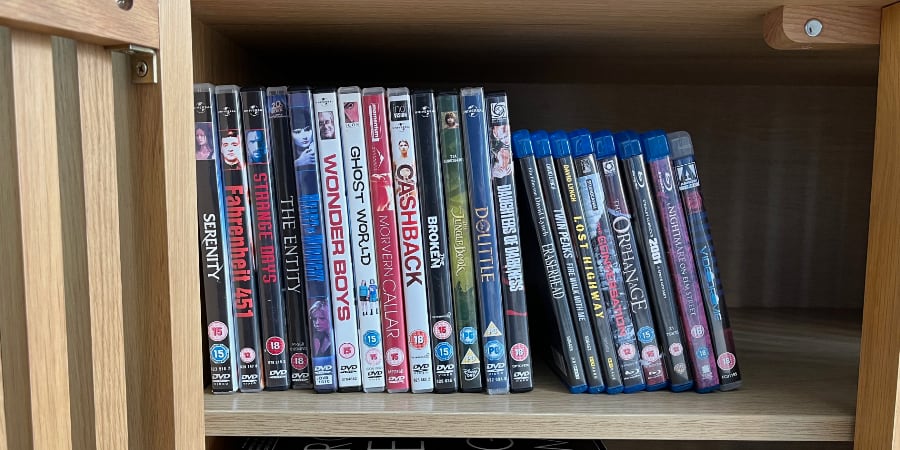
Physical media
Continuing my interest in how fiction and films work together, I picked up Cornish Horrors: Tales from the Land’s End, part of the British Library’s Tales of the Weird series, a collection I’ve owned for a few years and never read, and when the intro to the first story, Ligeia, by Edgar Allan Poe, mentioned there was a 1964 film with Vincent Price, I saw a project in the making.
Corman’s version, The Tomb of Ligeia, was written by Robert Towne and Paul Mayersberg. It has an Arrow Blu-ray with lots of extras for the curious, but it’s not available on the Arrow Video streaming service, and it’s not online anywhere else either. Amazon helpfully pointed out a well-reviewed six-disc collection of Corman/Poe films, all starring Vincent Price, and all films that I didn’t know, for £30.
Now, over the years I’ve built an extensive collection of digital films, but when I was keen to watch something specific and it wasn’t available online, I bought discs instead. This was when I had an old PS3, which died died about five years ago. I’ve been meaning to get a replacement player for a while, but I go in circles over the point of buying physical media. Underneath my TV I have a DVD of Heart of Midnight (with a young Jennifer Jason Leigh), and Blu-rays of Eraserhead and Daughters of Darkness. None of these are available online.
I committed. I bought a 4K Blu-ray player — a Panasonic DP-UB450EB, not a PS5, as tempting as that was. I don’t want to play video games, and the disc player is pretty basic compared to the standalone machines. I don’t want to become a physical media obsessive (take note, uc); I do want to watch the more obscure films I’m curious about.
It all arrives tomorrow. I’m going to read the short story this afternoon (I haven’t even read the story, and I’ve bought a Blu-ray player!), then watch the film this week and see what shakes out. I’m thinking about gothic stories on coastlines for my work-in-progress. That’s where all this started.
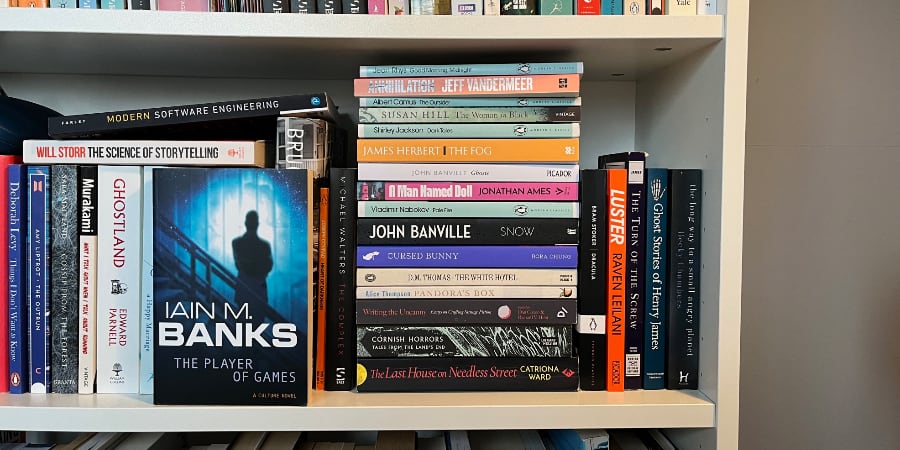
Evening classes
I’ve created a reading list my gut tells me is related to my work-in-progress. I went around the house scanning shelves and pulling out the books that tugged at my attention. One of them was The Complex, which surprised me, but perhaps I need to remind myself of the level I’ve reached before I try to aim higher. It’s all orientation of sorts.
The ideas around the work-in-progress have tremendous energy even after a long break, which is both exciting and a relief. Nobody else has written it. I’m not surprised, but that’s the fear, right?
Sometimes I write summaries of my notebook entries to remember what I wanted at the time and to appreciate progress in spite of life’s curveballs. This weekend I’m trying to understand how five years have passed since I finished The Complex and I haven’t written another novel. I know I write about this all the time, but it’s important to me I try to put a line under it.
I don’t see how I could have written anything last year. Before that it was lockdowns, fear of Covid, fear of Trump, Brexit, but being honest with myself, as much as anything, it was the dispelling of my illusions about the publishing industry and not believing enough in myself.
Finishing a novel and getting published is the first move in a bigger game. If that novel doesn’t catch people’s attention then you have to write another, but it’s tough to find motivation when you have no agent, no contract, no deadlines, no community, no external structures, and you know the odds of you having much cultural impact or getting any financial reward are close to zero.
There are people with incredible levels of belief in their own talent and the quality of their work. They might even self-publish, whether to prove a point or try to make more money. I suspect many writers who don’t break through stop after a while and do something more rewarding. Others enjoy the practice of writing enough that they keep going even knowing only a few friends will read what they’ve written.
Creative writing is an art, a craft, with all the pleasures available that people get from pottery or painting. My mother loved going across the road to the community college one evening a week, and over the years learned sign language, glass engraving, embroidery and calligraphy. I’ve done that in the past with Italian, counselling skills and, yes, creative writing. One of my neighbours makes wooden love spoons. My father-in-law made garden furniture.
There are pleasures in making independent of external measures of success. (Crazy, right?) They are the most important part of the experience. That’s the energy I’ve started cultivating.

Losing myself
I finally sorted the two big bags of books I brought back from Dad’s last weekend. He loved Stephen King, and he bought lots of King’s books as first edition UK hardbacks. I don’t currently have shelf space for this many books. I don’t know how much time it would take to read this many books.
Time has become a (falsely) scarce resource. There’s no time for fun. A stern look and, no, that doesn’t get you where you want to go, and no, not that book either, nor that film. Keep looking.
Losing myself in a book feels wasteful. Enjoying a trashy film feels dangerous. If I’m not careful, I’ll never be the successful writer I always dreamed of being (which hurts because it has truth to it, even knowing that success is my flexible friend).
If I lose myself in writing though, that’s good, because it’s creating something, a piece of art that didn’t exist, a piece of me that is not me. As a child, I could lose whole afternoons between the covers of a book. That was a sign of intelligence, sensitivity, but also a defence mechanism against family arguments. My mother taught me to numb myself with fats and sugars, sweet compensation for the difficulties of love.
Is the flow towards beauty, intimacy, or towards a hole in the ground? Am I connecting or avoiding?
Writing requires a diet of nutritious literary foodstuffs. Films contain drama, and drama is part of writing, but more important than drama in written fiction is language. Sentences. Paragraphs. The internal worlds of characters that a screen can’t show. In writing, there are no cameras to move, no actors to talk with, no special effects, no budgetary constraints — it’s all language. If it can be imagined, it can be written (and then re-imagined differently by every reader).
I’m getting lost in these thoughts. Dad had a talent for losing himself. He was impossible to know deeply. He had an astounding capacity for an internal life. That frightens me as much as it attracts me. I have the ability to do the same. I can make time disappear.
That’s my greatest fear. One day there will be no more time and that will be the end. I too will disappear. There’s too much life out there for me to lose myself in here. Books are only one aspect of life. There’s much more. I can lose myself without losing myself. Where am I heading when I am not lost?
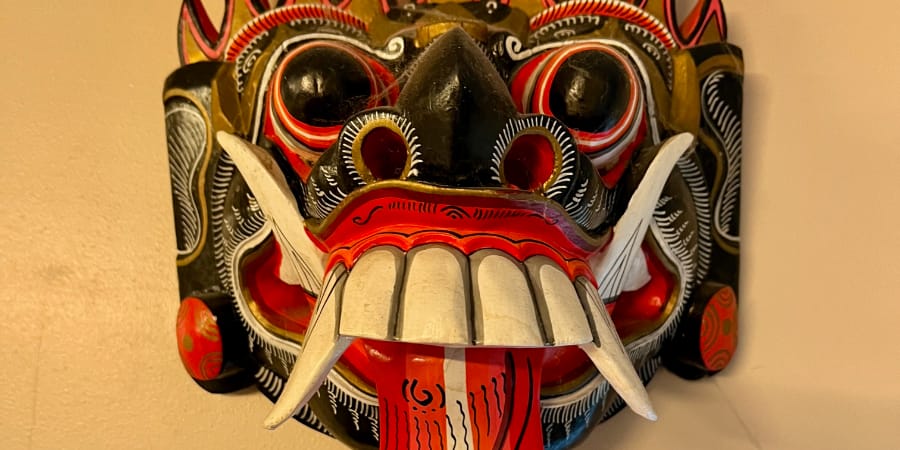
Writing is simple
I complicate things unnecessarily. Writing is simple. You write and edit until the piece of work feels complete and there is nothing more to do.
Writing in my notebook, the sentences disappear behind me unedited, a raw trail of thoughts, and I can’t write good sentences first time, so it’s like a conversation with someone rather than a piece of writing for others. It helps organise my thoughts.
As a writer, I want my sentences to be crafted for clarity and expressive power, and I want to think they might be read by an audience. Publishing on a website is one way of making myself pay more attention to what I’m trying to say and how I say it. To publish means to prepare and make available for a readership. It implies a degree of pride and care in what is being presented.
As I develop this piece of writing, I can already feel an urge to publish it. Is it complete now? Perhaps. Instead I’m going to reflect on why I want to stop at this point.
I think the end of that third paragraph is the completion of an idea, and three paragraphs is how long I’ve tended to make the many film pieces I’ve published on here. There’s an established length in my mind that I might be working to. And then there’s seeing it appear on my website, available to the world, which gives me a hit of dopamine. That’s addictive. It takes effort to delay that gratification.
A tweet (yes, I know) takes moments to write and can be published immediately. A novel might never get published. It’s my responsibility to decide what I want to put into the world, what risks I’m willing to take to do that, and how to build tolerance for the ambiguous present and unknowable future.